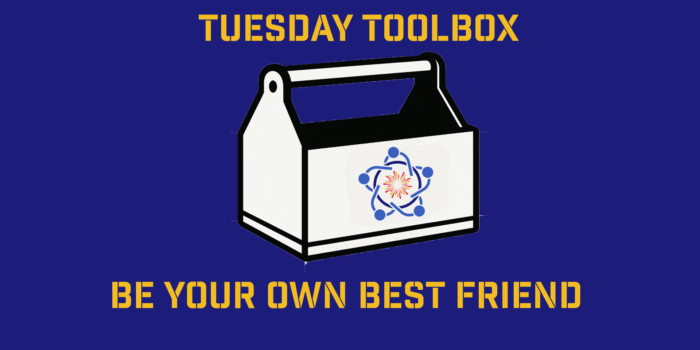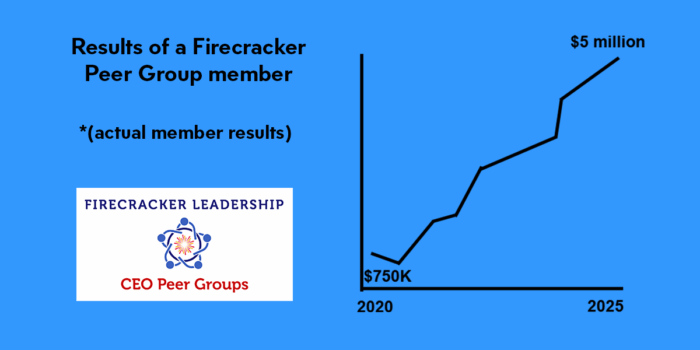My Wednesday Wish for You: To Be Your Own Best Friend We often push ourselves harder than anyone else ever…
Could you use these together because you want to improve?
Clearly words matter, but if you’re a leader, research shows — especially if you hope to increase performance, build more effective teams, forge better relationships, and gain buy-in — some words matter more than others.
Here we go.
“Could”
You describe a problem during a meeting. “What should we do?” you ask your team.
The first thing you should do (h/t to Daniel Pink) is subsitute “could” for “should.” “Should” typically limits possibilities, implying a finite set of choices. In fact, a study published in Organizational Behavior and Human Decision Processes found that “should” usually results in coming up with just two choices, limiting you to an either/or decision.
Unfortunately, most leaders tend to use “should” when they ask for input or feedback. If you’ve given the issue some thought, sifted through possibilities, and come up with what you feel are the two best options, you naturally present the solution as an either/or.
This is a problem, because as a Harvard study published in Academy of Management Journal found, using “could” instead of “should” generates a greater number of potential, and better, solutions.
Why? “Should” feels like something you have to do. “Could” opens things up. “Could” implies you haven’t narrowed the solution set to a few choices, implying unlimited possibilities.
“Could” feels like something you get to do.
As the researchers write:
Considering what one could do shifts people from analyzing and weighing what they assume to be fixed and mutually exclusive alternatives to generating options that might reconcile underlying imperatives. Having a could mindset helps individuals engage in divergent thinking.
[And] in group contexts, we find that adopting a could mindset encouraged individuals to spend more time discussing these dilemmas and generating more ideas.
The next time you encounter a problem, don’t think, “What should I do?” And definitely don’t say, “What should we do?”
Just state the problem — without in any way implying you have the answer — and ask, “What could we do?”
You’ll get much better input.
“Because”
If you need something, asking politely works. (As Mark Cuban says, being nice is one of the most underrated skills in business.)
But providing a reason is even more effective.
As described in Robert Cialdini’s book Influence, researchers asked people to try to butt in line to use a copier, using one of three phrases:
Phrase 1: “Excuse me, I have five pages. May I use the Xerox machine?”
The result? 60 percent of the people standing in line let the individual in ahead of them. (Most people like to be nice, or, at the very least, like to avoid confrontation.)
Phrase 2: “I have five pages. May I use the Xerox machine because I am in a rush?”
The result? 94 percent of the people standing in line let the individual in ahead of them. (Also makes sense; nearly everyone tries to be helpful.)
Phrase 3: “Excuse me, I have five pages. May I use the Xerox machine because I have to make copies?” The result? 93 percent of the people standing in line let the individual go ahead of them.
Which makes no sense. Everyone in line needs to make copies–otherwise they wouldn’t be in line. “I have to make copies” isn’t a reason to jump ahead. Yet almost everyone still let that person cut the line.
Why? As Cialdini writes, “A well-known principle of human behavior says that when we ask someone to do us a favor we will be more successful if we provide a reason. People simply like to have reasons for what they do.”
Whenever you want the people you lead to do something — to do anything — always include the word “because.” But don’t stop there. Make sure your “because” is clear, logical, and compelling.
Then people will want to work with you, and not just for you.
“Together”
Obviously teams work together. (Or should.) Yet stating the obvious — by using the word “together” — can cause people to work harder, longer, and more effectively.
A study published in Journal of Experimental Social Psychology placed participants in two groups. One worked on a task on their own. The other was told they would work on the task “together” and could ask for a tip from a team member.
When the results were tallied, the people who heard “together”:
- worked almost 50 percent longer,
- solved more problems correctly,
- found it easier to stick with the task, and
- said the task was more “interesting,” and were more likely to perform that task again
Even though they didn’t actually work together.
As the researchers write:
Social cues that signal an invitation to work with others can fuel intrinsic motivation even when people work alone.
The results suggest that cues of working together can inspire intrinsic motivation, turning work into play.
Not sure about the whole “play” thing, but feeling like you’re a part of a team — feeling like you’re a part of something bigger than yourself — makes a huge difference.
Say you’re assigning people to a team. Don’t just say they’re a member of the team. Don’t just say what you want them to accomplish. Say they’ll work on the project together. Say they’ll achieve the outcome together.
Science says they’ll likely work harder, longer, and better.
And will also enjoy it more.
Win-win-win-win.
BY JEFF HADEN, CONTRIBUTING EDITOR, INC.



